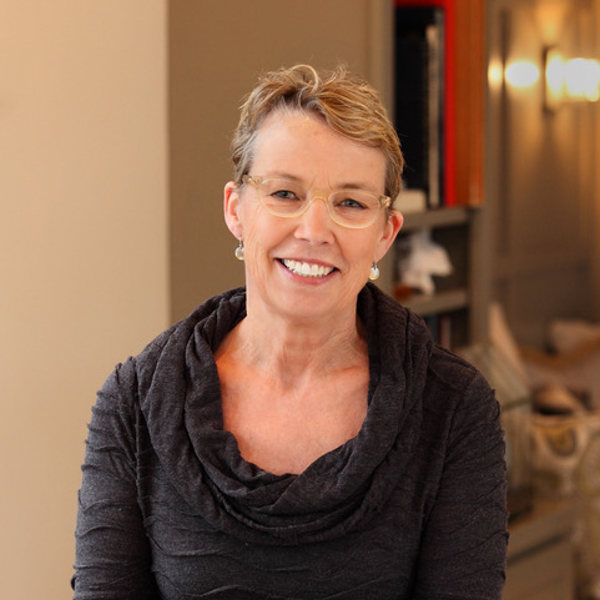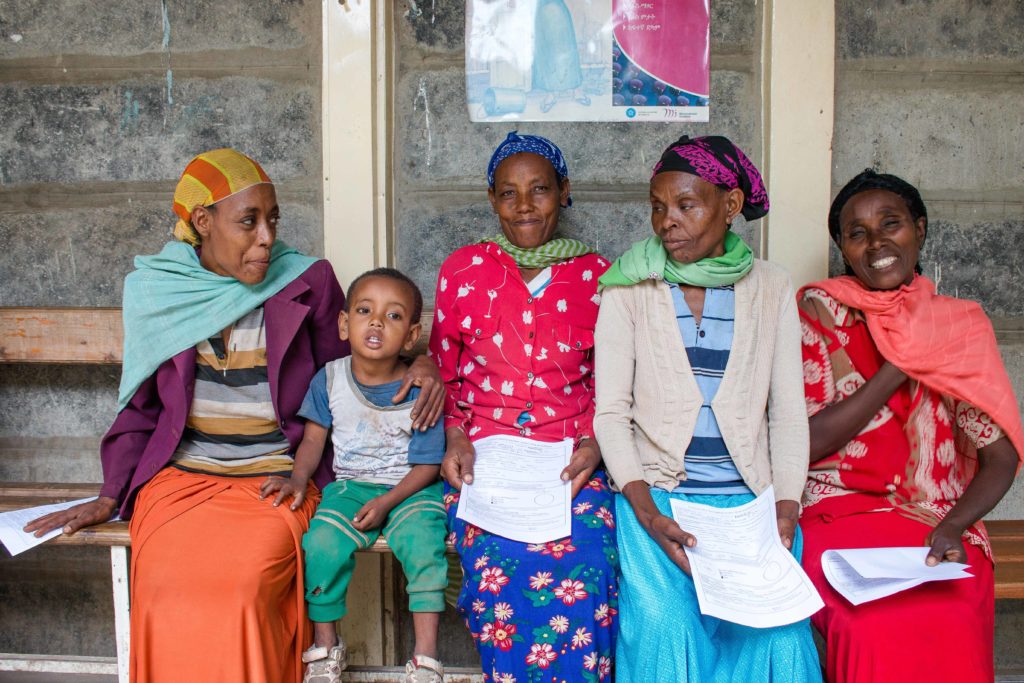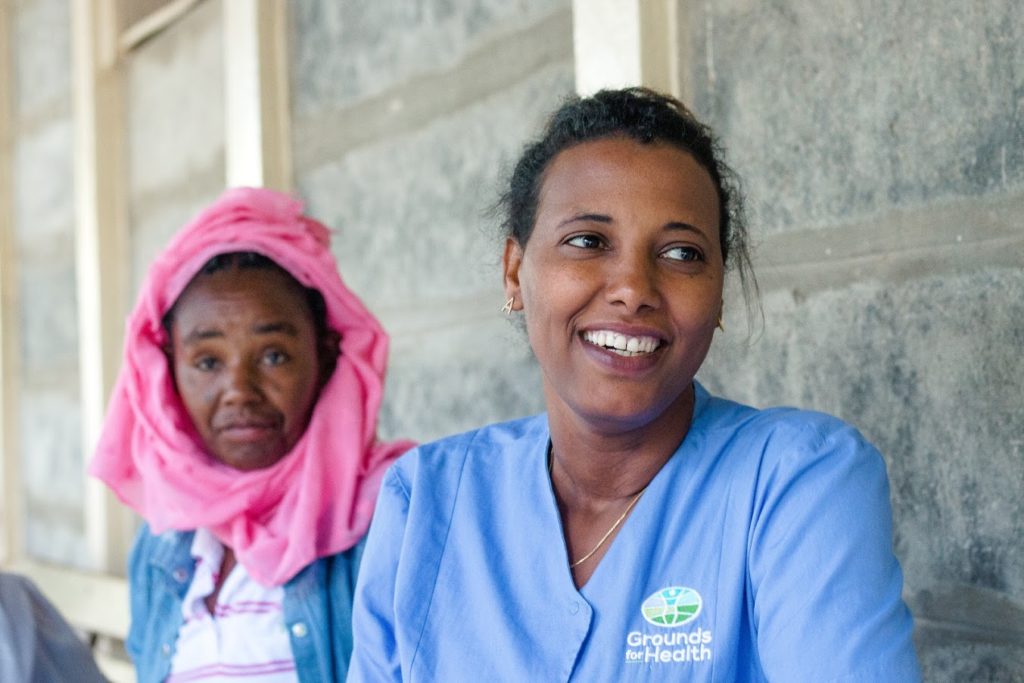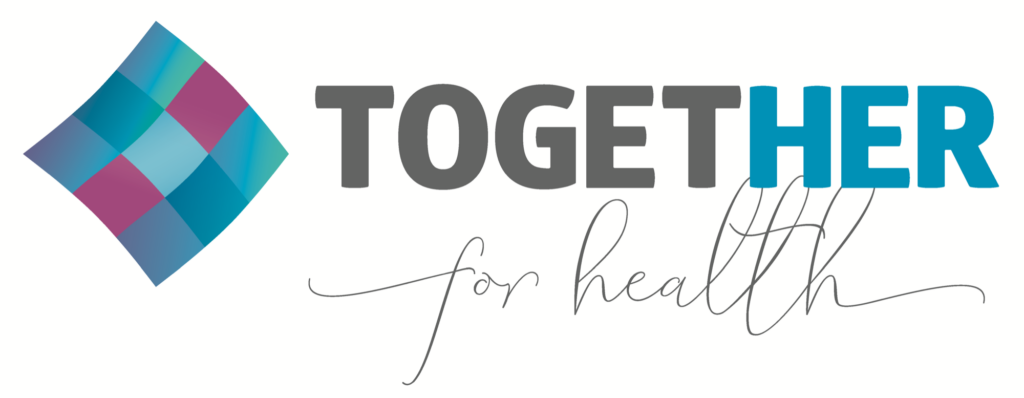The TogetHER Interview: Ellen Starr, Executive Director, Grounds for Health

November 16, 2020
The impact of COVID-19 on global cervical cancer prevention efforts has been wide-ranging, with unclear long-term ramifications. Our new TogetHER Interview series provides an opportunity for key leaders in global cervical cancer control to discuss current challenges and provide perspective on where the field needs to go from here.
This installment of the TogetHER Interview series features Ellen Starr, Executive Director of Grounds for Health.
Header and headshot photo credit: Grounds for Health

How have you and your organization been impacted by and adapted to COVID-19?
Grounds for Health works in cervical cancer prevention in coffee-growing regions around the world. Coffee is grown in some of the most rural settings where women have disproportionate economic and social challenges, including access to quality health care. These are the same communities that are at particularly high risk for the ravages of COVID-19. While the worst-case scenario of the pandemic’s impact on many countries in East Africa simply hasn’t happened, we are still taking the risks very seriously and instituting personal protection behavior and social distancing in all of our work.
We are a capacity-building organization working in partnership with national public health systems with programs currently in Ethiopia and Kenya. While our typical screen-and-treat campaign model of service provision has been put on hold, we are still able to support the facility-based cervical cancer prevention programs staffed by the providers we have trained.
COVID-19 has been a distraction, and appropriately so. That said, I believe it is unacceptable for women to die from a preventable disease if we can find creative ways to continue to safely screen and treat for cervical pre-cancer.
What concerns you most about women’s health in low-resource countries during the pandemic? What is your organization doing about it?
Limited availability of healthcare services in low-resource settings is especially acute in the rural coffee growing communities where Grounds for Health works. Women are responsible for approximately 70% of the labor associated with coffee production while at the same time shouldering more than 90% of the informal labor associated with child rearing, household management and caring for elderly family members. The ramifications of the loss of even one woman to cervical cancer, a preventable disease, are profound and unnecessary. The pandemic only serves to magnify this healthcare disparity and its ramifications by shifting the focus away from preventive healthcare and towards COVID.

“We are committed to keep this important work of cervical cancer prevention on-going despite the pandemic.“
Photo credit: Grounds for Health

We see this as the right time to introduce HPV self-sampling to our programs, allowing for improved accuracy of screening while supporting social distancing practices. Self-sampling will allow women to stay closer to home while giving our staff the opportunity to work within the community to reduce the stigma and misinformation related to COVID-19. We are committed to keep this important work of cervical cancer prevention on-going despite the pandemic.
How do you see cervical cancer prevention – the HPV vaccine and screen-and-treat – coming back after the pandemic? What can we do now to prepare for the resumption of services?
In Kenya and Ethiopia, we are pleased that our screen-and-treat programs have not had to entirely shut down. For us it will not be about resuming services but rather ramping them up once we are able to return to our campaign, same-day treatment model. Programs in other low-resource countries with greater incidence of COVID-19 will be well-served by planning now for the introduction of HPV self-sampling when possible. This approach to screening will have a notable impact on recruitment and help get programs up and running even more successfully in the post-pandemic era. The resumption of these programs will be critical to the success of the WHO’s call to action to eliminate cervical cancer

“In Kenya and Ethiopia, we are pleased that our screen and treat programs have not had to entirely shut down. For us it will not be about resuming services but rather ramping them up once we are able to return to our campaign, same-day treatment model.”
Photo credit: Grounds for Health

What is something you have learned during COVID-19 that makes you hopeful?
Sadly, the COVID-19 pandemic has been a shared, albeit unequal, experience around the globe. The tables have turned and our staff in Ethiopia and Kenya now rightly worry more about our staff here in the US than the stereotypical other way around. Of course I would never wish a pandemic on anyone, but I do believe that the health challenges shared across the globe will have a long-lasting and positive impact on our definition of “community”. That makes me hopeful.
Learn more about Grounds for Health’s cervical cancer prevention programs here.
Interested in reading more TogetHER Interviews with leaders in the global cervical cancer response? Click here for the full list.

Ellen Starr is a Women’s Health Nurse Practitioner and the Executive Director of Grounds for Health, an international NGO focused on increasing coverage of cervical cancer secondary prevention in the remote coffee growing regions of the world with programs currently in Ethiopia and Kenya. She worked as a clinician at Planned Parenthood of Northern New England for over 30 years and ultimately became the Vice President of Health Center Operations. Ellen holds a BA from Middlebury College and an MSN from Massachusetts General Hospital Institute of Health Professions with a specialty in women’s health.
